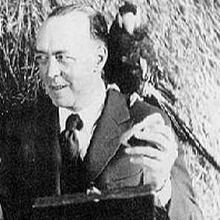999 PRISCILLA
Mar 29, 2023

Edgar Rice Burroughs was an American author, known for his prolific output in the science fiction and fantasy genres.
Edgar Rice Burroughs was an American author, known for his prolific output in the science fiction and fantasy genres.